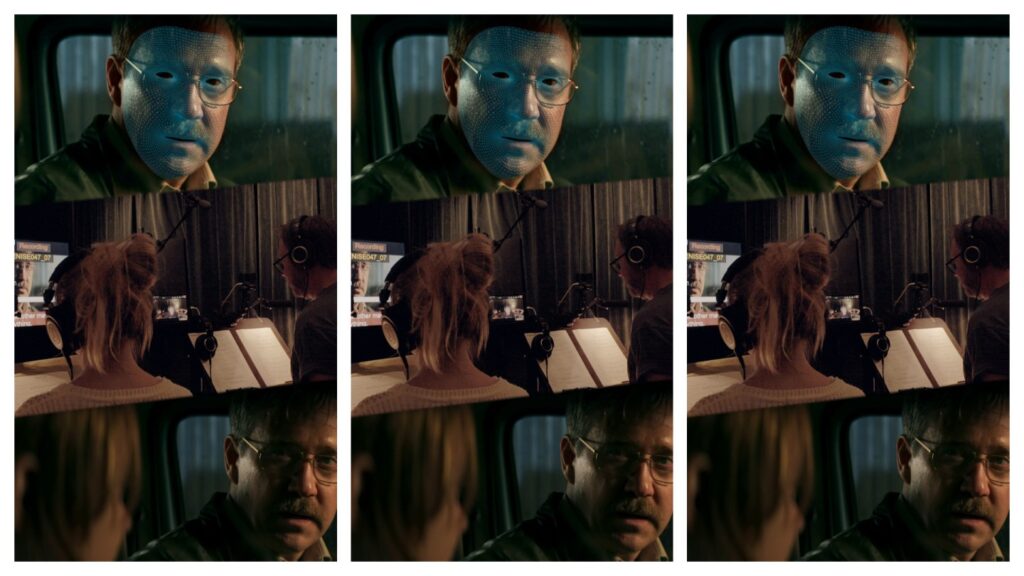Is Hollywood’s AI Anxiety Shifting Towards Optimism?
As we dive deeper into awards season, conversations around artificial intelligence in Hollywood are ramping up. Recently, a storm brewed over Karla Sofía Gascón’s posts on X (formerly Twitter), which sparked debates surrounding George Floyd and Islam. Yet, earlier discussions had shifted focus to the use of AI in films like Emilia Pérez and The Brutalist, where it enhanced performances—tweaking voice work to improve singing and language pronunciation.
What’s notable is the backlash against these AI applications, even though they were implemented with artists’ consent. This fear highlights a growing sentiment in the industry: that AI threatens jobs and undermines artistic authenticity. Celebrities like Robert Downey Jr., Glenn Close, and Hank Azaria have voiced their concerns, leading distributors to tag their films with “no AI” labels, akin to animal welfare guarantees in film production. In fact, audiences have rallied around the “made by humans” tag on features like Adam Elliot’s charming Memoir of a Snail, cheering for the authenticity that comes with it.
Changing Tides Behind the Scenes
Despite the clamor, there’s a whisper of excitement brewing among some filmmakers regarding AI’s potential. Scott Mann, co-founder and co-CEO of Flawless, an AI company based in Los Angeles specializing in foreign-language dubbing, says, “There’s an incredible undercurrent of excitement coming from a lot of filmmakers and artists right now about what these new tools, if used correctly, can do.” However, fear of backlash keeps many from expressing this enthusiasm, especially after the tumult surrounding The Brutalist.
Flawless is on the cutting edge, utilizing its immersive dubbing tech to partner with German director Tom Tykwer on The Light, which is set to premiere at the Berlinale. This version will allow international audiences to experience the film with high-quality English dubbing while retaining the original German version for local viewers. This technology represents a seismic shift in how films can reach wider audiences, especially for those that typically wouldn’t see a U.S. release.
Dubbing Redefined
The traditional dubbing process often alters dialogue to sync with the lip movements of actors, creating a disconnect between the audience and the original performance. Flawless’s innovative tech enhances this by adjusting the original actors’ lip movements to match a new language, either through the original performer or native voice actors. This contrasts with “voice cloning” methods, which have faced scrutiny for their digital manipulation, as seen in The Brutalist and Emilia Pérez.
Mann highlights the positive reception from filmmakers who see this tech as a gatekeeper to wider distribution for their films. For instance, indie distributor XYZ Films plans to roll out a slate of genre titles dubbed using Flawless’ technology, such as the Swedish sci-fi thriller Watch the Skies.
Navigating the Ethical Landscape
Flawless emphasizes its collaboration with SAG-AFTRA to ensure ethical compliance. This sentiment was echoed by SAG-AFTRA chief negotiator Duncan Crabtree-Ireland at a recent gathering in Davos, where he praised AI innovations designed to “serve human creativity, not replace it.”
However, the industry isn’t without its skeptics. David McClafferty, a former dubbing producer for Netflix, calls for transparency between studios and talent, insisting that the audience must be kept in the loop. "The audience is not stupid!" he asserts, urging studios to prioritize trust and collaboration over secretive practices that could damage reputations and relationships.
Global Perspectives on AI in Film
Globally, many indie filmmakers are embracing AI as a tool for cost-effective international film adaptation. Fabián Forte’s The Witch Game employed AI to recreate original Spanish performances in English for U.S. and U.K. audiences, while the Polish biopic Putin used AI tech to convincingly model the visage of the Russian leader over an actor’s body. This has proven lucrative, with Kinostar, the film’s distributor, reporting strong sales due to its impressive visual technology.
AI is transforming the dubbing landscape, with various companies emerging to offer similar tools, such as DeepDub, DubFormer, and ElevenLabs. Yet, as innovations roll out, anxieties linger about job security and the risk of homogenizing content.
Seeking Balance in AI Implementation
As the indie film industry faces tumultuous times, many see the careful adoption of AI as a potential lifeline. Mann argues that the key to progress lies in responsible technology use, stressing the need for consent-driven, copyrightable, and artist-focused applications. “It’s time for a more nuanced conversation, not just making AI the villain,” he insists.
This pivotal moment in Hollywood asks not just what AI can do, but how it can coexist with creativity. Will it become a transformative force, or will it continue to spark fear and resistance? The answers await, but a broader conversation is definitely on the horizon.
The AI Buzz Hub team is excited to see where these breakthroughs take us. Want to stay in the loop on all things AI? Subscribe to our newsletter or share this article with your fellow enthusiasts.




